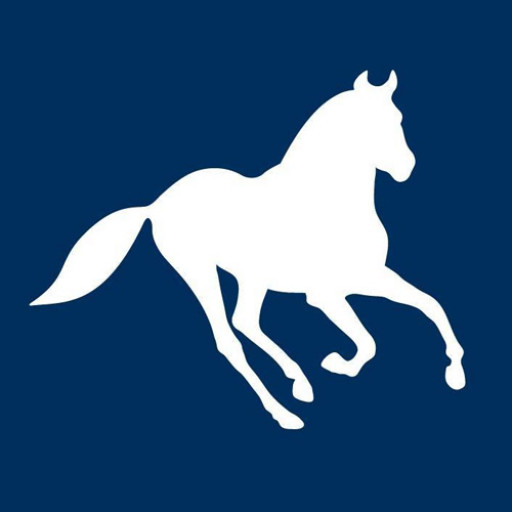Photos of university / #unizh
The Bachelor's Degree Programme in Informatics at the University of Zurich provides students with a comprehensive foundation in computer science, equipping them with theoretical knowledge and practical skills necessary for a variety of careers in technology and related fields. The programme is designed to foster critical thinking, problem-solving abilities, and an understanding of the fundamental concepts underlying modern information and communication technologies. Throughout the course of study, students engage with cutting-edge topics such as algorithms, programming languages, software development, data management, artificial intelligence, machine learning, computer systems, and cybersecurity. The programme emphasizes both academic rigor and practical application, offering opportunities for hands-on projects, internships, and collaborations with industry partners. Students learn to analyze complex problems, develop innovative solutions, and communicate technical ideas effectively. The curriculum is structured to build a strong mathematical foundation and promote mathematical reasoning, which are essential for advanced study and research in computer science. In addition to technical courses, students have the chance to explore interdisciplinary applications of informatics in areas like bioinformatics, digital humanities, and financial technology. The programme also encourages participation in research projects, competitions, and workshops to enhance learning experiences and prepare graduates for the evolving demands of the digital world. Graduates of the Informatics programme are well-equipped for diverse career paths, including software development, data analysis, IT consulting, research, and academia, or for pursuing advanced degrees. The University of Zurich’s vibrant academic environment provides a stimulating setting for learning, innovation, and personal growth. With a strong international orientation and dedicated faculty, the programme ensures students develop not only technical expertise but also the soft skills necessary for leadership in fast-paced, globalised industries. Graduates leaving the programme are prepared to contribute to technological advancements and to address societal challenges through informatics-driven solutions.
| Course | ECTS |
| Internal Doctoral Seminars (DS) | 1.0 |
| Internal DS: SoftTalk | 1.0 |
| Doctoral Consortium | 0.5 per day |
| Retreat | 1.0 |
| Doctoral Course (DC): Software Engineering | 1.5 |
| DC: Advanced Graphics & Geometry Techniques | 1.0 |
| DC: Visual Perception | 1.0 |
| DC: VisWeek | 1.0 |
| DC: Morphological Computation | 1.0 |
| Spring-school (FS): Neural Dynamics Approaches | 2.0 |
| Summer-school (SS): MMCS: Dynamic Locomotion | 0.5 |
| SS MMCS: Morphological Computation | 0.5 |
| SS: MMCS: Physics Simulation | 0.5 |
| SS: MMCS: Multimodal and Cognitive Systems (all of the 3 above) | 1.5 |
| SS: Autonomous Intelligent Robots | 2.5 |
| SS: Complex Software Systems | 2.0 |
| SS: Multimedia Robotics | 1.5 |
| SS: Robot Learning | 2.5 |
| SS: RobotCub | 2.0 |
| SS: Sparse Tensor Discretizations | 2.0 |
| SS: Veni, Vidi, Vici | 4.5 |
| SS: Web Reasoning | 3.0 |
| Winter-school (WS): Rehabilitation Robotics | 2.5 |
- It is strongly recommended that applicants take the GRE (Graduate Record Exam) General Test. Applications without GRE will be reviewed, but not submitting GRE test results will be considered a major drawback and must be offset by very strong academic credentials (e.g., high grade point average). Applicants obtaining a university degree from a non-Bologna country have to hand in a GRE in order to have a chance to be admitted.
- Proficiency in English is required. No specific test is required, but applicants who have taken the TOEFL (Test of English as a Foreign Language) are encouraged to provide a copy of the official test results. Applicants obtaining a university degree from a non-Bologna country whose native language is not English, have to hand in a recognized English certificate and meet the minimum requirement of the University of Zurich in order to have a chance to be admitted.
- Curriculum vitae
- Transcripts of academic records (documents in English, German, or French require no translation; documents in any other language must be translated into English or German and certified for official use)
- A Statement of Purpose concerning your plans for doctoral studies and career objectives. The statement should be written in English and should not exceed 1,500 words.
- One copy of an essay that you have written (a seminar thesis for example, a Master's thesis or a research proposal, etc. The purpose is to get an idea of how your scientific work is)
- Letter of recommendation. You will be asked during your online application to invite referees to submit a letter of recommendation on your behalf and you have to submit at least 2 letters in order to complete your application.
Scholarships
- Fritz Kutter Award for Industry Related Thesis in Computer Science
- GI-Dissertationspreis
- Klaus Tschira Preis für verständliche Wissenschaft
Expenses
Living expenses depend very much on the individual student. These figures should therefore be regarded as a guideline only (in CHF):
| Rent incl. heating | 550 |
| Additional expenses (telephone, internet) | 200 |
| Meals | 400 |
| Insurance | 250 |
| Travel | 80 |
| Clothing, laundry, personal items | 70 |
| Leisure, spending money | 150 |
| Teaching materials | 50 |
| Total | 1,750 |
The expected minimum cost of living for students therefore comes to a total of CHF 1,750 per month.






